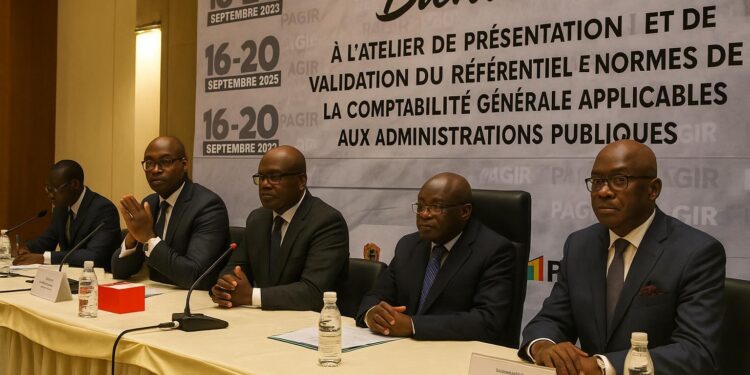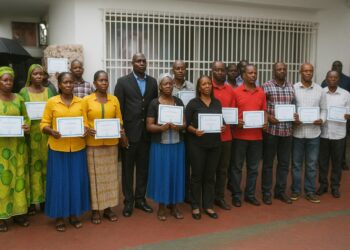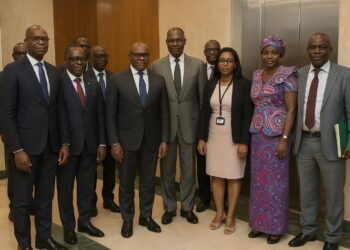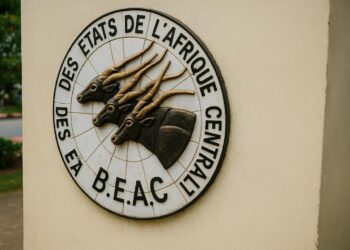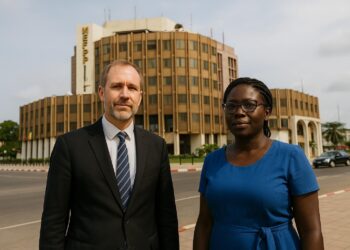Congo’s Accounting Leap Forward
The Republic of Congo has taken another decisive step toward modern public financial management. During an intensive workshop in Kintélé from 16-20 September 2025, officials validated a new General Accounting Framework for Public Administrations that mirrors international best practice, strengthening confidence in state ledgers.
The initiative, steered by the General Directorate of Public Accounts and Patrimony, received technical and financial support from the World Bank through its PAGIR programme. Participants hailed the week as a cornerstone for delivering transparent, reliable and traceable fiscal information to all stakeholders.
Strategic Alignment with PREF-CEMAC
Opening the session, Finance, Budget and Public Portfolio Minister Christian Yoka reminded delegates that Brazzaville has fully embraced the strategic orientations of the CEMAC Economic and Financial Reforms Programme, PREF-CEMAC. “Credible figures are indispensable to credible policy,” he stated, urging rigorous debate.
Technical Backbone of the Framework
More than one hundred accountants, auditors and planners then scrutinised detailed exposure drafts inspired by International Public Sector Accounting Standards. Topics ranged from consolidated financial statements to recognition of tax revenues, provisions and contingent liabilities, ensuring the final document answers both regional and global comparability requirements.
Adoption of the reference framework crowns earlier milestones, including the December 2024 approval of Congo’s first modern State Chart of Accounts. Together, the two instruments form an integrated architecture that supports medium-term expenditure frameworks and results-based budgeting already piloted in several ministries.
Transparency and Investor Confidence
Saturnin Ipodo-Nzingou, Director-General of Public Accounts, stressed the reform’s practical dimension. He noted that timely, comprehensive data will ease parliamentary oversight, improve debt sustainability analysis and facilitate access to concessional finance. “Information is the oxygen of decision-making,” he told the closing plenary.
Regional observers underline the importance of synchronising with CEMAC guidelines on fiscal convergence. By aligning classifications, Congo helps the Bank of Central African States compile comparable statistics and positions itself favourably in discussions on a future regional bond market (CEMAC Commission 2023).
International partners are equally attentive. The World Bank’s latest diagnostic on governance highlighted fragmented reporting as a barrier to domestic revenue mobilisation (World Bank 2024). The new framework directly addresses that gap, potentially unlocking disbursements tied to performance indicators under budget-support operations.
Beyond development finance, rating agencies monitor the depth and reliability of government disclosures. A shift toward IPSAS-inspired norms usually translates into improved transparency scores, a factor that can influence sovereign spreads. Investors seeking exposure to Congolese Treasury bills will watch implementation closely.
Accrual Principles and Asset Valuation
Technically, the framework introduces accrual principles for recognising assets, liabilities, income and expenses, complementing cash-basis records still required for treasury management. Such dual recording should reduce payment arrears, an issue periodically flagged in IMF Article IV consultations, without undermining liquidity monitoring.
It also prescribes uniform asset registers, a prerequisite for valuing the state’s patrimony. This innovation is expected to support ongoing public-private partnership negotiations in infrastructure, where clear ownership titles and depreciation schedules reduce contractual risk and speed up financial close.
Digital Tools and Rollout Timeline
Digitalisation is integral. A new module within the Chorus ERP, jointly developed with the Ministry of Digital Economy, will automate journal entries and produce dashboards for line ministries. Pilot tests in the Energy and Health portfolios already show a 30 percent reduction in reconciliation delays, officials say.
The workshop further agreed on a sequenced rollout. Fiscal year 2026 will serve as a dry-run with parallel books; full statutory reporting under the framework is slated for 2027, allowing sufficient time for training, systems tuning and audit guidance from the Supreme State Audit Court.
Building Skills for Implementation
Capacity building remains critical. The National School of Administration has included a 120-hour IPSAS course in its curriculum, while regional bodies such as CREFIAF have offered e-learning modules for municipal accountants who must also adopt the standards to ensure consolidated reporting.
Access, Climate Finance and Civil Oversight
Civil-society groups welcome the move but underscore the need for timely publication. Budget advocacy platform CIRCAF notes that transparency gains appear only if citizens can easily access readable reports. Authorities indicate that a dedicated portal will publish quarterly summaries starting next year.
For the government, the benefits extend to climate finance. Accurate asset and liability data will facilitate issuance of green bonds linked to forestry conservation commitments under the Congo Basin climate agenda, an area where international investors demand stringent impact measurement.
Macroeconomic Discipline Ahead
Economists caution that upgraded reporting must be paired with disciplined execution. Medium-term fiscal frameworks, currently under review, foresee a gradual reduction of the deficit to below 3 percent of GDP by 2028, contingent on stronger non-oil revenues and prudent debt management practices.
Governance Gains and Outlook
Ultimately, the modern accounting framework is less about bookkeeping and more about governance. By anchoring fiscal choices in verifiable numbers, Congo demonstrates its determination to deliver prudent macroeconomic management, reinforce trust with partners and unlock sustainable growth opportunities for public and private actors alike.

































